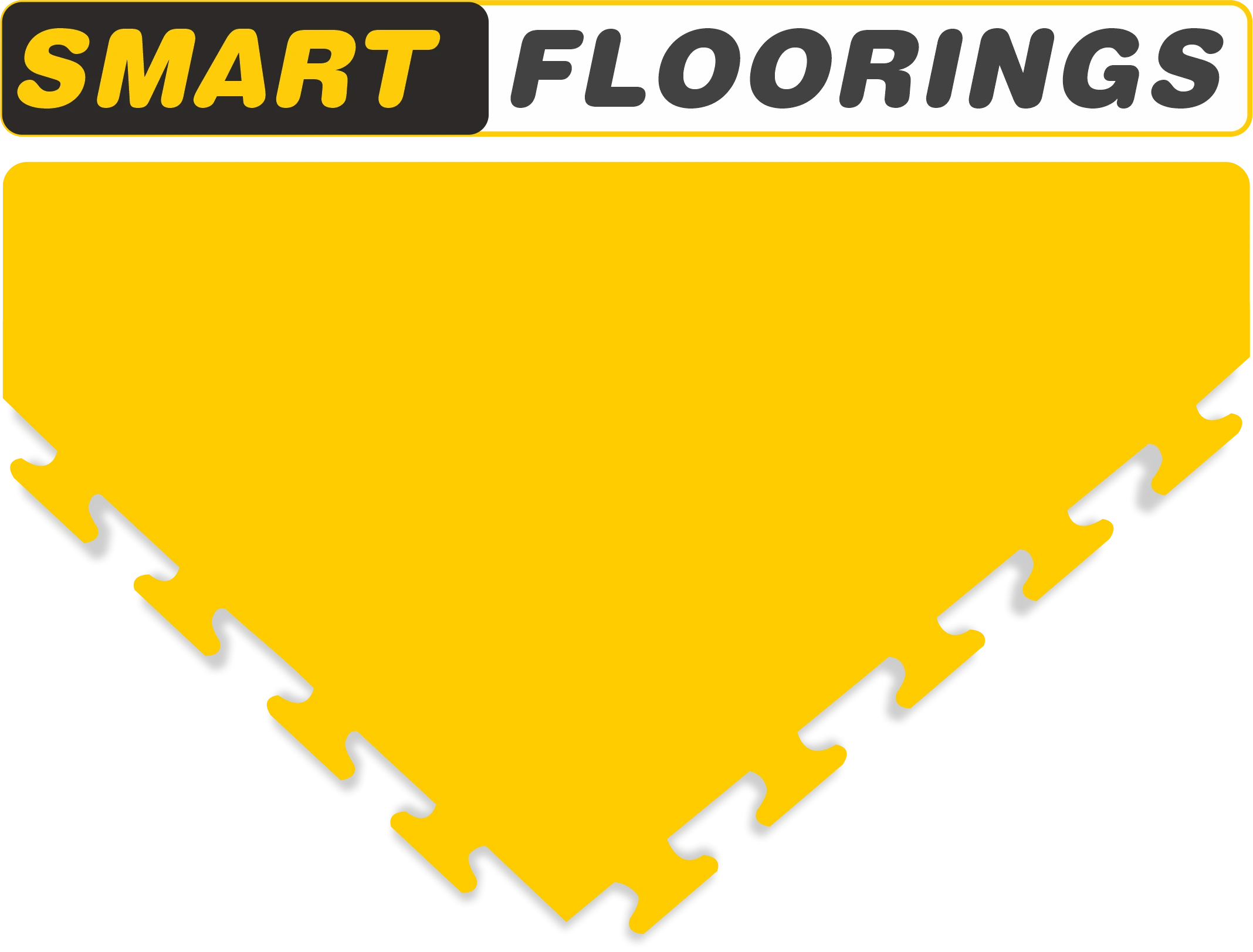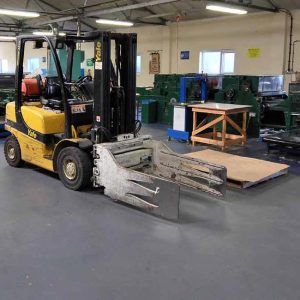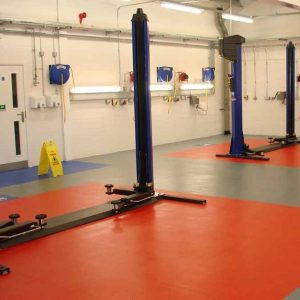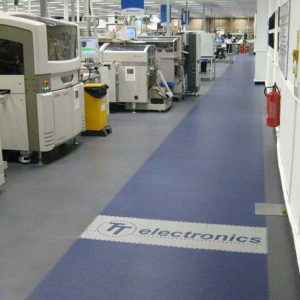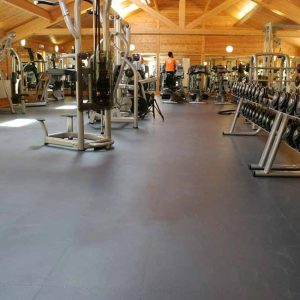Everything You Need to Know About Industrial Non Slip Flooring
Industrial non-slip flooring solutions minimize the risk of slips and falls, which are among the most common workplace accidents. It is needed to maintain a safe work environment. However, the type of flooring you choose also plays a vital role. If you are considering upgrading your industrial space with non-slip flooring, this article will provide you with everything you need to know. So, let’s start!
The Surprising Truth About Industrial Non-Slip Flooring!
Accidents involving slips and falls may cause severe injuries, expensive lost time, and even legal problems for your company. Such catastrophes are much more likely to occur in settings with heavy machinery, chemicals, or liquids. Here, the industrial non-slip flooring solutions offer the traction required to stop these mishaps. This special kind of flooring promotes the productivity of your company and the safety of your staff.
But, to be honest, safety is not the only reason to invest in non-slip flooring. This type of flooring is also incredibly durable, capable of withstanding heavy foot traffic, machinery, harsh conditions, etc, and typically in industrial settings. So, you need to choose the right non-slip flooring for your company. This will strengthen safety and reduce maintenance costs over time.
Have a Look at the Types of Industrial Non-Slip Flooring
1. Epoxy Flooring
The exceptional durability and non-slip qualities of epoxy flooring make it a popular option for industrial environments. It is created by mixing hardeners with resin to produce a durable & cleanable surface. You can customize or technically speaking, you can improve the non-slip qualities of epoxy flooring by adding different textures to them.
2. Rubber Flooring
What can be the better Industrial non-slip flooring option than Rubber flooring? It is another excellent option, particularly for areas where comfort and noise reduction are important. Rubber naturally offers high traction. This high traction makes it ideal for non-slip applications. It is also resistant to chemicals and impacts. All these factors make it suitable for a wide range of industrial environments.
3. Interlocking Tiles
Interlocking tiles are a versatile and easy-to-install option for industrial non-slip flooring. These tiles can be quickly assembled. You don’t need adhesives or specialized tools to install them. This makes them a cost-effective solution. They come in various materials like PVC and rubber which are designed to provide excellent traction & durability.
4. Vinyl Flooring
Vinyl flooring is the best low-maintenance and versatile industrial non-slip flooring. It is appropriate for industrial applications as non-slip coatings can be applied during manufacturing. Vinyl is a dependable material for many industrial situations since it is also resistant to chemicals and moisture.
How Can You Choose the Right Non-Slip Flooring for Your Industry?
The unique requirements of your sector must be taken into account while choosing industrial non-slip flooring for your space. For example, flooring that is easy to sanitize and non-slip can be required in food processing facilities. Your primary goals in a manufacturing facility or warehouse must be impact resistance and durability of your industrial non-slip flooring. It is important to consider the long-term advantages. High-quality non-slip flooring may appear expensive up front, but any industrial company would benefit from its longer lifespan, cheaper maintenance expenses, decreased accident rate, and more.
The Safest & Durable Industrial Non-Slip Flooring from Smart Flooring
The lifespan, effectiveness, and safety of your business are all impacted by the flooring you choose for your industrial area. Industrial non-slip flooring is an investment in your company’s overall profitability as well as a safety component. Well, you can also get in touch with Smart Floorings for the best all-in-one industrial non-slip flooring solutions. We are a leading tiles & flooring solutions provider in Europe with years of expertise in the flooring industry. Whether you need features of epoxy, rubber, interlocking tiles, or anything for instance, Smart Floorings has the perfect all-in-one industrial non-slip flooring option for your space. Contact us today for a free consultation.
FAQ’s
1. What Is the Best Non-Slippery Flooring?
Rubber flooring is a fantastic no-slip flooring option due to its superior grip and durability, making it suitable for gyms and industrial settings. Textured vinyl flooring is another excellent option since it is slip-resistant and requires little upkeep, making it ideal for damp spaces such as bathrooms and kitchens. Furthermore, cork flooring has natural slip resistance and a cushioned surface, making it suitable for home usage. Each option improves safety while remaining functional and visually pleasing.
2. How Do You Make a Floor Slip-Resistant?
Making a floor slip-resistant involves several key steps. First, use anti-slip coatings or treatments that are particularly developed to improve traction and minimize slipperiness. These materials produce a rough surface to assist avoid slips. Non-slip mats or rugs can also give additional grip in high-risk locations such as entrances, kitchens, and restrooms. Make sure these mats have a non-slip backing to keep them in place. It is also critical to choose cleaning products that do not leave a slippery residue; avoid wax-based cleansers, which can slick flooring. Consider using slip-resistant adhesive tapes or strips on stairs and ramps to improve safety. Regular care is required; keep floors clean and dry, and immediately mop up any spills. You can significantly enhance the safety of your flooring by implementing these measures.
3. What Is Non-Slip Flooring Called?
Non-slip flooring is also known as anti-slip flooring or slip-resistant flooring. These terms refer to a range of materials that give improved traction and lower the chance of slipping. Textured vinyl, rubber flooring, anti-slip tiles, and particular coatings or treatments given to different flooring surfaces are some examples. These types of flooring are especially effective in places prone to wetness or heavy foot traffic, providing a safer environment for all users.
4. How Can I Make My Floor Less Slippery?
To make your floor less slippery:
- Use anti-slip coatings and treatments. These coatings are particularly intended for flooring, increasing traction while decreasing slipperiness.
- Use non-slip mats or rugs in high-risk locations including entrances, kitchens, and bathrooms. Ensure they have a non-slip backing.
- Use non-slip cleaning solutions instead of wax-based cleansers, which can cause slick flooring.
- Adding slip-resistant adhesive tapes or strips to flooring, particularly on stairs and ramps, can improve safety.
- Maintain clean and dry flooring, and mop up spills quickly.



